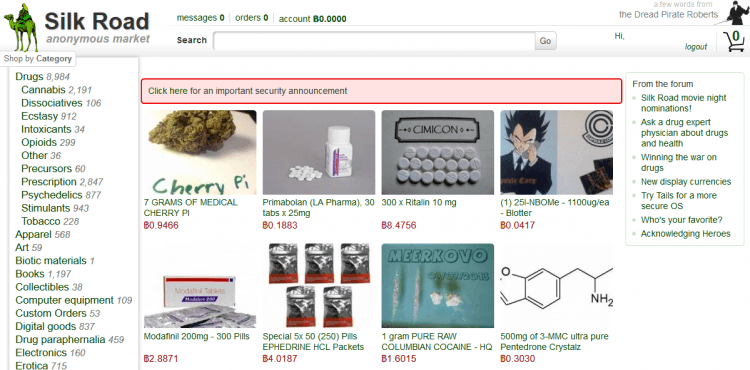Last week we learned that the FBI brought down the infamous online drug market called Silk Road, along with its alleged owner, Ross Ulbricht. The website was touted as a relatively safe way to conduct otherwise shady drug deals, especially since the market frequently referred to itself as "anonymous" and all transactions were conducted through the untraceable cryptocurrency Bitcoin.
However, following the takedown of Silk Road, it would appear as though the feds are starting to track down and target its users. Numerous arrests have already been made worldwide and it looks like more are to come. According to Gizmodo, a Washington man and his roommate have been charged with selling heroin, cocaine and methamphetamine through the online marketplace. Suspect Steven Sadler is believed to have used the name "NOD" on Silk Road, and is considered to be in the "top one percent of sellers", distributing individual-use amounts to hundreds of buyers around the globe.
In addition to the US crackdown, numerous other arrests have been made worldwide. In the UK, four British suspects have been arrested by the National Crime Agency, a new organization that is the UK equivalent of the FBI. Another two men have been arrested in Sweden on charges related to the sale of marijuana. At this point in time, it's not exactly understood how the feds have identified its users; although it's highly possible that they gleaned information off of the Silk Road servers that were recently seized.
For law abiding citizens, most of this news will be of little concern. However, users of Silk Road are understandably worried. On Reddit, multiple threads have already started, asking for advice on whether or not they need to seek legal help. Other Redditors have claimed to have even been contacted by authorities about drug sales; however, these calls could simply be linked to a common scam.
Expect more arrests to come in the next few days and weeks. The feds will certainly be making an effort to strike down the major sellers and buyers, although it's unlikely that small time users will ever be targeted.
Image via PCWorld
